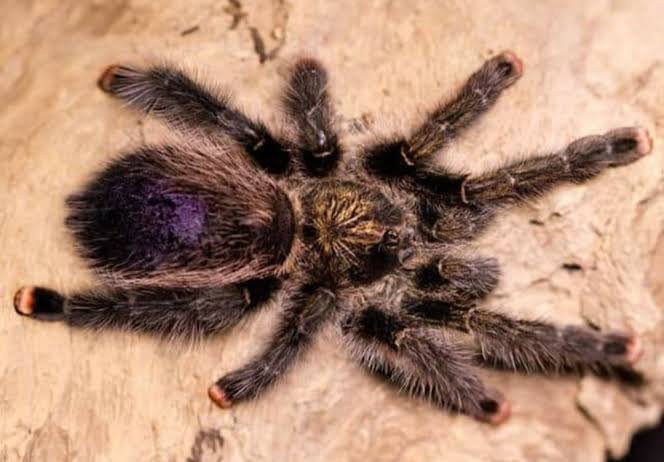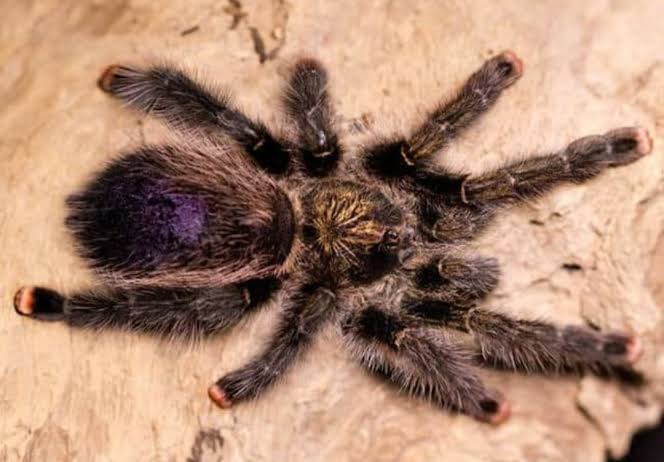Tarantuladen.co.za
Mardi Gras Pink Toe (Avicularia sp. “Pucallpa”)
Mardi Gras Pink Toe (Avicularia sp. “Pucallpa”)
Out of stock
Couldn't load pickup availability
A vibrant and colorful member of the Avicularia genus, this species is affectionately known as the “Mardi Gras Pink Toe” for its flashy coloration and festive hues. Native to Peru, it's a rare arboreal beauty that dazzles with deep greens, purples, and pinks — like a party in a spider.
Quick Facts
Common Name: Mardi Gras Pink Toe
Scientific Name: Avicularia sp. “Pucallpa”
Origin: Pucallpa region, Peru
Size: 4.5–5 inches (11–13 cm) leg span
Lifespan:
- Females: 10–12 years
- Males: ~2–3 years
Temperament: Calm to skittish — prefers to flee rather than fight
Coloration
Iridescent green carapace and abdomen with purple tones
Legs show flashes of pink, violet, and sometimes gold — hence the "Mardi Gras" nickname
Toes are typically pink or magenta
Juveniles are often metallic green with bright toes, maturing into deeper hues
Housing & Care
Enclosure Type: Arboreal — tall, ventilated enclosure
Substrate: 2–3 inches of moist coco fiber or topsoil mix
Humidity: 70–80% — mist lightly a few times per week
Temperature: 72–80°F (22–27°C)
Decor:
- Upright cork bark for climbing
- Plants and anchor points for webbing
- Water dish (essential)
- Good cross-ventilation is crucial
Known for building silken retreats high up in the enclosure — not a ground dweller.
Feeding
Diet: Crickets, roaches, mealworms
Feeding Schedule:
- Slings: 2–3x/week
- Juveniles: Weekly
- Adults: Every 10–14 days
Agile feeders, may prefer nighttime hunting
Why Keep One?
Uncommon in the hobby — a true collector’s species
Striking, iridescent colors that shimmer under light
Classic Avicularia behavior: web tubes, graceful climbing
Calmer than most arboreals — ideal for experienced beginners
One of the most beautiful arboreals when fully grown
Notes
Needs good airflow — poor ventilation can cause health issues
Can be jumpy when startled, but rarely defensive
Not ideal for handling, but not particularly aggressive
Can stress easily if kept too dry or disturbed often
Share


